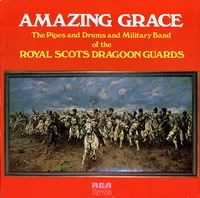 So what's left to say about the runt of The Osmond's litter and his number one? Chubby of chops and squeaky of voice he may have been, but long of hair and scouse of origin he was certainly not; 'Long Haired Lover From Liverpool' is a terrible song from start to finish, the opportunistic sound of an irritating, hyperactive child being given a platform and encouragement to perform his party piece. It's the sort of thing that usually goes on behind closed doors when the relatives are round, only this one was very public performance and it stayed at number one for five frikking weeks.
So what's left to say about the runt of The Osmond's litter and his number one? Chubby of chops and squeaky of voice he may have been, but long of hair and scouse of origin he was certainly not; 'Long Haired Lover From Liverpool' is a terrible song from start to finish, the opportunistic sound of an irritating, hyperactive child being given a platform and encouragement to perform his party piece. It's the sort of thing that usually goes on behind closed doors when the relatives are round, only this one was very public performance and it stayed at number one for five frikking weeks.There's nothing much to like about this at all; the tune is repeated verse after verse by the very excitable Jimmy who churns through them oblivious to what he's singing, all the while grinning like a simpleton and happy enough to take his turn in the spotlight away from his brothers. The trouble is, he's no prodigy in the vocal stakes. Tuneless, untrained and out of control, his voice is pretty much how you'd expect any average nine year old to sound and there's no hook or gimmick to hang this on other than the surname Osmond. Maybe the sight and sound of a nine year old singing was a novelty akin to a dog walking on its hind legs in 1972, but thanks to the likes X Factor such a trite proposition doesn't cut the mustard anymore. Praise the lord that some elements of modern life have changed for the better.















